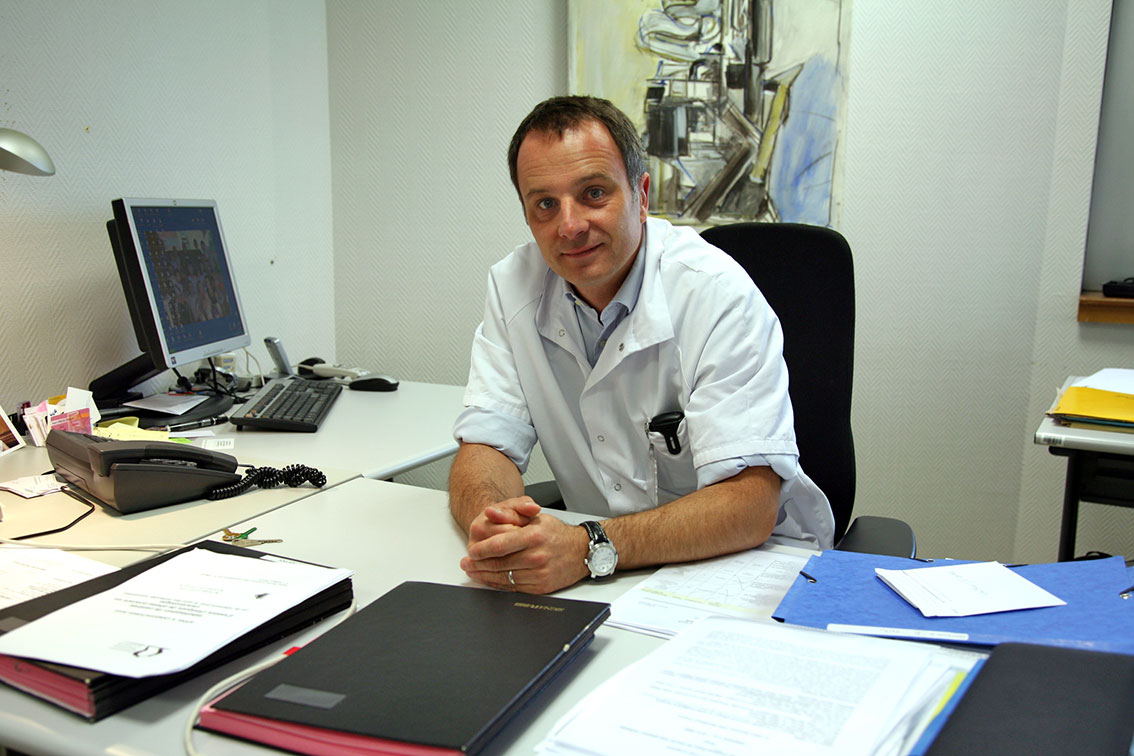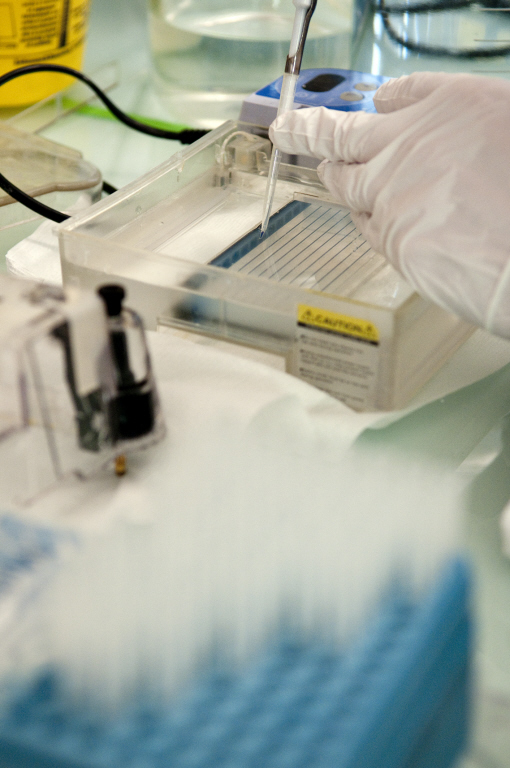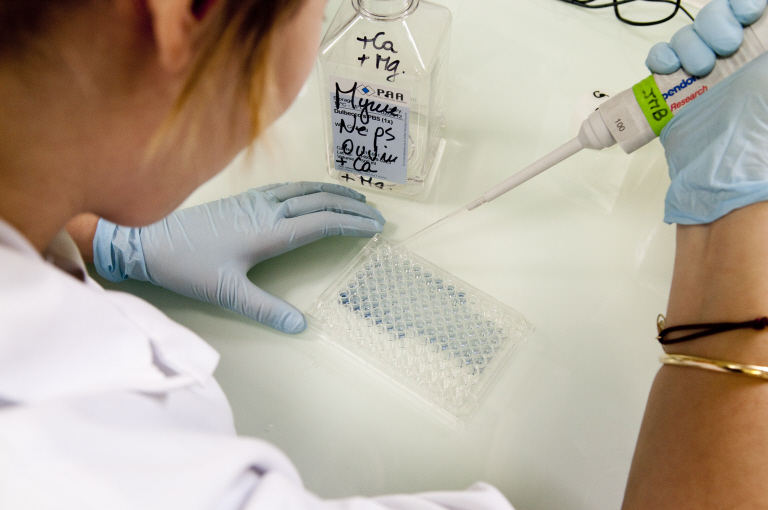Innovation for all: Clinical Trials
Clinical trials to assess in humans, new treatments in terms of efficacy and safety: drug delivery systems, processing techniques (radiotherapy, surgery) or diagnosis. At a time when medicine allows a personalized response to the patient, clinical trials allow everyone to have a therapy more innovative than before.
Clinical research: a dedicated structure
The Clinical Research Unit, IUCT Oncopole cross-activity, manages more than 300 clinical trials, phase I to phase III. The inpatient unit can accommodate patients included in clinical trials as well as outpatients in full hospitalization.
The different phases of development of a new treatment.
The development of a drug goes through different phases, each of which contain several tests: Pre-clinical non-clinical experimental studies (animal or cell models) to confirm the suitability and safety of the new molecule identified
- Phase 1: evaluate the tolerance of the body to determine the recommended dose. This phase includes a small number of patients.
- Phase 2: determine the efficacy and safety of treatment. The number of inclusions is slightly greater
- Phase 3 trials compare treatment with the one which is the reference to date. Is it comparable or better? Many patients are included.
- Phase 4 trials are realized after the marketing of the drug to better understand the product and its effects in the longer term. The inclusions are at a large scale.
For each test, the modalities of management are described in detail in a memorandum written by a team of specialists in the considered pathology.
The labeled IUCT-Oncopole to perform early clinical trials (Phase I)
Early test is to assess a number of criteria:
- safety of a new molecule (administered alone or in combination)
- its life in the body,
- the potential adverse effects
- gathering information on its anti-tumor activity.
The IUCT-Oncopole is part of certified centers. It has therefore a logistical and financial support from the National Cancer Institute (INCA). This certification elevates it to the highest international quality standards, thereby certifying compliance by the IUCT-Oncopole, with strict criteria of international quality. This recognition gives a strong signal to industry and academic partners.
In this context, the IUCT-Oncopole mission is:
- Design and conduct national and international clinical trials of early stages,
- Respond to calls for projects launched or managed by INCa
- Respond to industrial or academic demand after project evaluation by a scientific committee.
- Ensure a supervision on the use and effects of these innovative molecules after obtaining their on their marketing authorization (AMM).
The conduct of a trial
Studies are performed on groups of patients, never on one person. These patients are "included" and should be comparable in terms of age, tumor, and previous treatment.
Sometimes, in some studies, treatment assignment is done randomly by lot: method validated scientifically. It is called "randomization”. This approach avoids any subjectivity in the allocation of treatment to a patient or another and respects ethical considerations. Several laws and guidelines govern the conduct of clinical trials. Healthcare modalities are described in detail in a protocol.
Why participate in a trial?
Participate in a clinical trial gives the patient the possibility to be active and faster access therapeutic innovation. This participation is an inclusion, if the criteria of the study coincide with the profile of the patient and the disease from which he suffers. This active approach is essential to the discovery of new molecules and the development of therapeutic orientations. It is done with the patient's informed consent.
The inclusion in a trial
Participation in a clinical trial is voluntary. The patient receives a full and transparent information before committing. It is on this preliminary information that he gives his "informed" consent. At any time, he may decide to withdraw. It does not change the commitment of the medical team to treat his disease. Another appropriate treatment will be offered to him.
During treatment, everything is implemented to ensure patients safety. He is subject to enhanced surveillance : Consultations, blood ...The collected data provide information on tolerance, side effects and effectiveness of therapy. This information, recorded in a notebook, remain anonymous. The results from the analysis allows to change the oncology practices.
Testimony

« It is a quest for constant incontrovertibility between basic and clinical research .We enjoy a proximity with the Oncopole that simplifies all exchanges between these two worlds. This is what is called translational research. »
Professeur Jean-Pierre Delord, oncologue, Clinical Research Director


